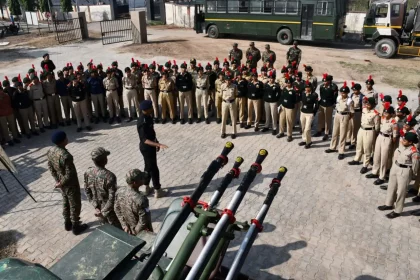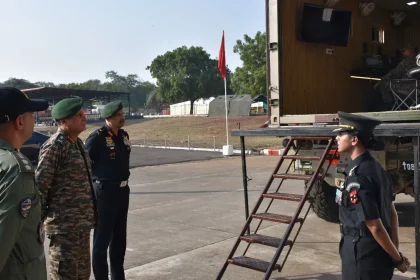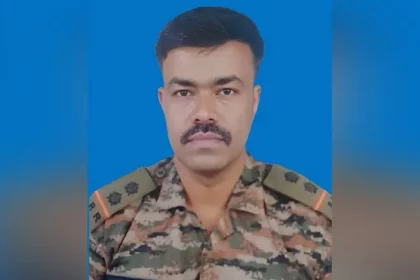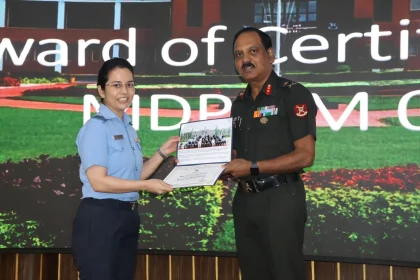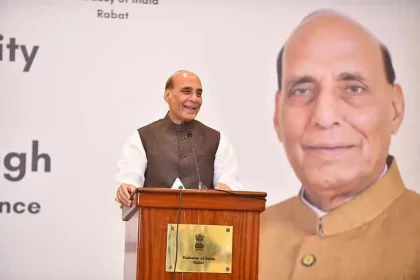Airawat Division Hosts Operational Orientation and Career Counselling for NCC Girl Cadets
NCC Cadets Get Firsthand Exposure to Modern Air Defence Systems and Career Paths.
Lt Gen Dhiraj Seth Reviews Key Military Aviation Innovations at Night Raiders Aviation Squadron
Southern Army Commander Reviews Aviation Innovations at Night Raiders Squadron.
Army JCO, Agniveer Lose Their Lives in Separate Incidents in J&K’s Poonch
Two Soldiers Die in Unrelated Mishaps Amid Ongoing Operations in Poonch.
Rear Admiral Vidhyadhar Harke Assumes Charge as 27th Flag Officer Sea Training
Decorated Naval Officer Takes Charge of Navy’s Premier Sea Training Command.
CDM Conducts Management Development Programme on Research Methodology for Armed Forces Officers
Week-Long Programme Enhances Analytical and Research Skills of Mid-Level Officers.
Indonesia Formally Expresses Interest in Buying BrahMos Missiles, Confirms Defence Minister Rajnath Singh
Jakarta’s Interest Marks a Major Boost for India’s Expanding Defence Export Footprint.

